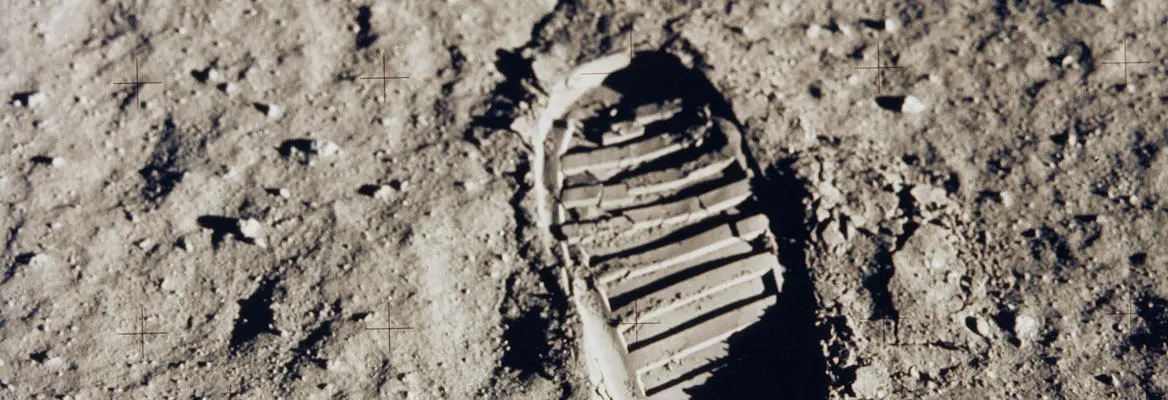For a number of reasons I have been thinking recently about the 1969 moon landings. Partly it was the fact that the recent series-finale of the AMC TV serial Mad Men was set during that hot July, with all the characters agog at the splendour of Armstrong’s one small step. The show recaptured the mood of that time: a whole world was filled with an almost transcendent excitement—and with good cause. In my opinion, in a thousand years the names of all the politicians, artists, movie stars, scientists and philosophers will be long forgotten, but people will still know the name of Neil Armstrong.
Another reason this has been on my mind lately is because of one of my hobbies: collecting science fiction magazines from the 1950s-70s. I happened to pick up some old copies of Analog from a junk shop, and was reading through the way they reported Apollo. Of course the contributors were all tremendously excited by the moon mission, as you would expect them to be. But without exception they saw it as the start of something bigger: manned missions to the other planets; a permanent moon base; the colonisation of outer space by mankind. It was the dream of science fiction. It was the dream I grew up with.















Join the conversation